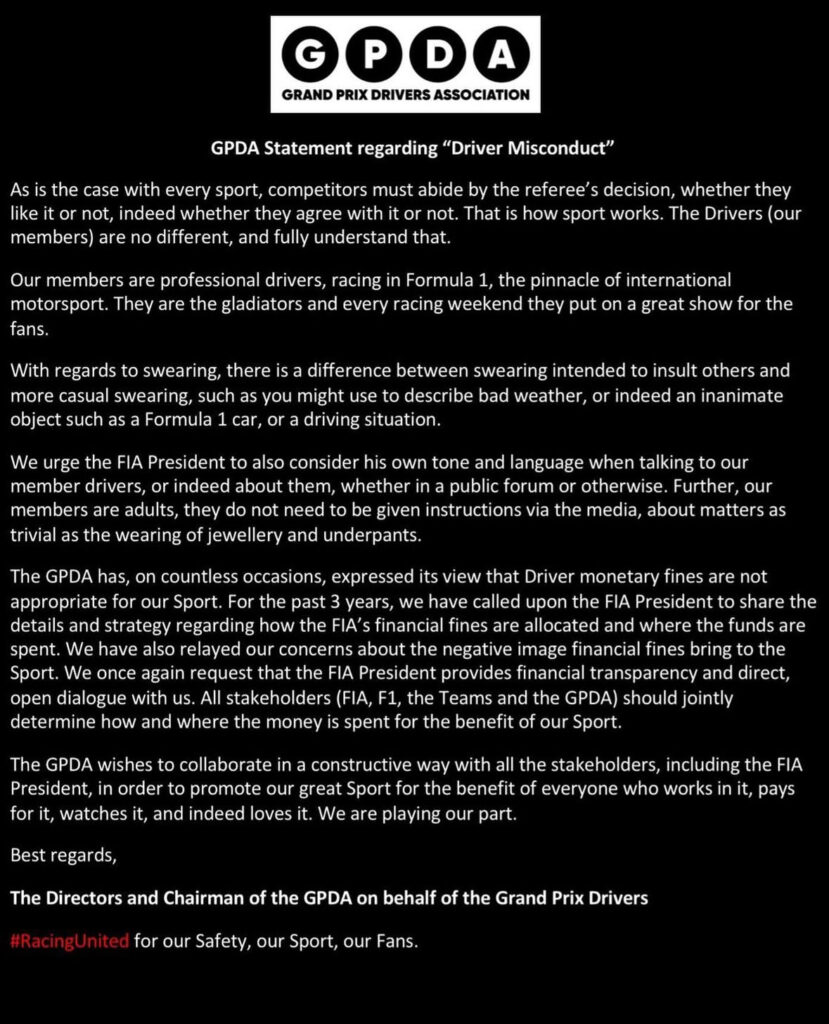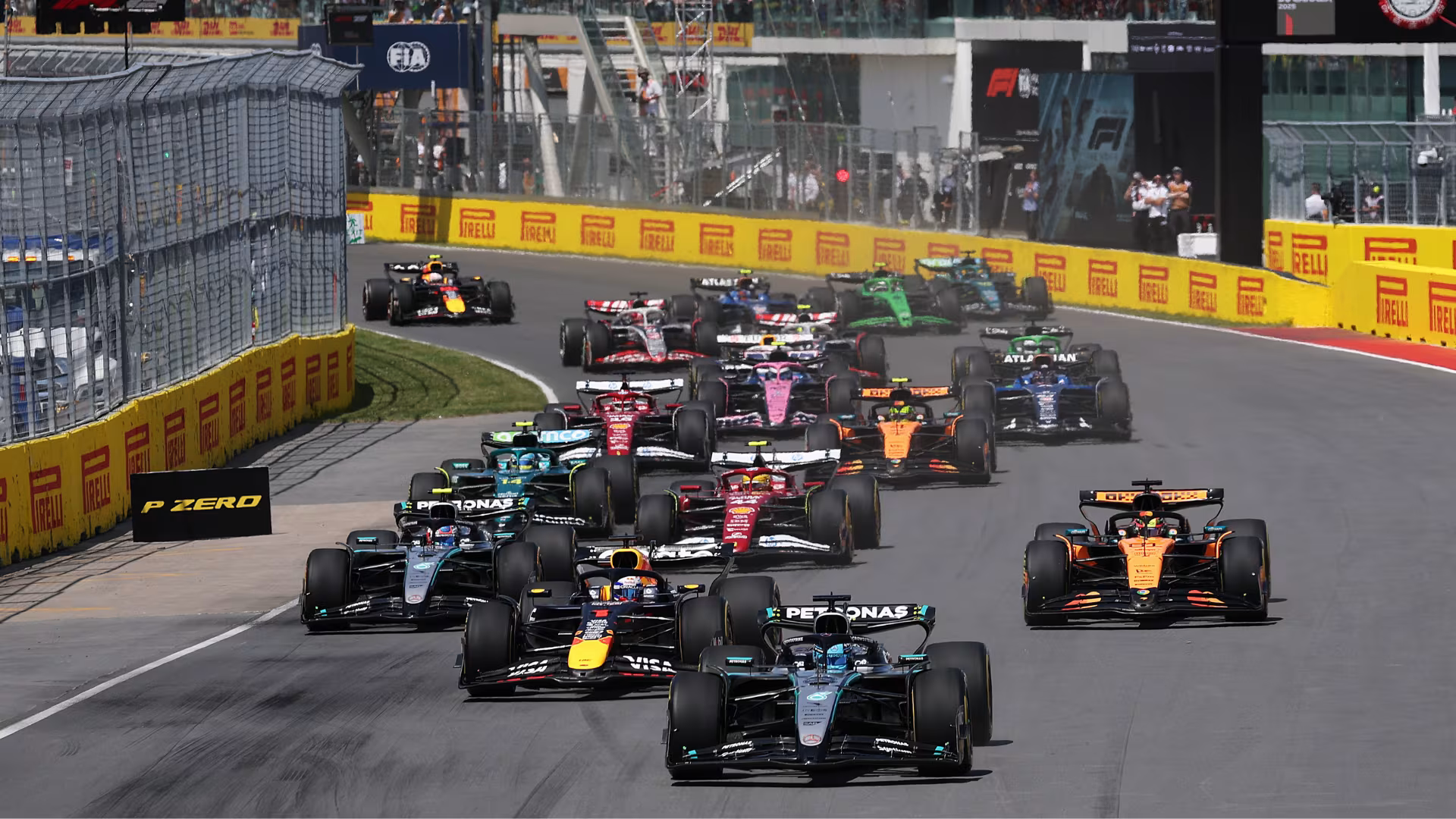Ahead of the F1 Austrian GP, FIA President Mohammed Ben Sulayem and the Federation have published two key documents outlining the stewards’ guidelines. The documents aim to deliver more transparency and consistency in regard to how stewards judge penalties and racing incidents, addressing several concerns drivers have raised in recent months about inconsistent penalties.
In the FIA’s statement, Ben Sulayem addressed the unfair criticism and scrutiny that the FIA Stewards have faced as a result of certain decisions this year. The Emirati hoped that the FIA’s efforts in publicising and clarifying the stewards’ guidelines would demonstrate their efforts in ensuring consistency moving forwards.
“FIA Stewards perform a hugely complex task, not just in Formula 1 but across all of our championships, and they do this voluntarily, with great passion and commitment. That dedication is all too often met with extreme and wholly unwarranted criticism. To demonstrate the rigour with which they pursue their role, we are today publishing the Penalty and Driving Standards Guidelines that assist them with their decisions. This will give fans and members of the media a much deeper and more accurate insight into how decisions are made in Formula 1. The Penalty Guidelines have been a core tool for almost a decade while the Driving Standards Guidelines introduced in 2022 and constantly updated have brought the most important voices, those of the drivers, to the table to create a genuine reference for certain racing situations.”
Inconsistent penalties have become a talking point
The new guidelines now gives teams, drivers and fans a clear look at how stewards will make their decisions moving forward.
This had all begun early in the season. After a debate erupted following the Turn 1 incident in Jeddah between Verstappen and McLaren’s Oscar Piastri, the Dutchman was handed a five-second penalty. Later, when similar incidents unfolded at the Miami GP, the stewards decided to not issue any penalties. Since then, a growing confusion and uncertainty have surrounded how stewards have chosen to make decisions behind closed doors.
However, this comes after the incident between Max Verstappen and George Russell at the Spanish GP which brought the topic of the FIA stewards guidelines and penalties into focus. Verstappen has accumulated 11 active penalty points, putting him just one point shy of a race ban. Under today’s guidelines, the Spanish GP incident would have earned him a 10-second stop-and-go penalty and 4 penalty points, instead of the 10-second penalty and 3 penalty points he received. If that had happened, the 4-time World Champion would have needed to sit the Austrian GP out.
Some progress made after GPDA demanded action
After Verstappen’s swearing incident at the Singapore GP last year, Ben Sulayem and the FIA have come under public scrutiny for various decisions. As the reigning World Champion’s actions resulted in a community service penalty, the Dutchman responded with a silent protest and stand-off. In response, the FIA introduced a swearing ban that undeniably angered many. The GPDA issued a joint statement from all drivers, calling for accountability, mutual respect and greater transparency in how the organisation spent monetary fines.

Today, alongside Ben Sulayem’s statement, Russell—who takes on the GPDA Director role—said: “Greater transparency within the governance of our sport is an important issue and this is a useful step in that direction. Hopefully it will be beneficial for the sport to give the media and fans a clearer understanding of the rules of engagement when we’re racing on track, and to help them understand how the stewards reach their decisions.”
The GPDA has called for action a long-time now, and finally the FIA has responded. Undoubtedly, the new clarity in guidelines would have hopefully answered many doubts in the sport. The FIA addressed the guidelines for common issues such as impeding, moving under braking, and rejoining the track in its 5-page Driving Standards document—areas that often lead to subjective decisions. Meanwhile, a separate 13-page document outlined the penalty guidelines that apply when these incidents occur.
The FIA has stated it will refine and improve the guidelines with input from drivers and teams. With this new level of transparency, all eyes will be on the FIA to see if it applies consistent decisions to common incidents going forward.





